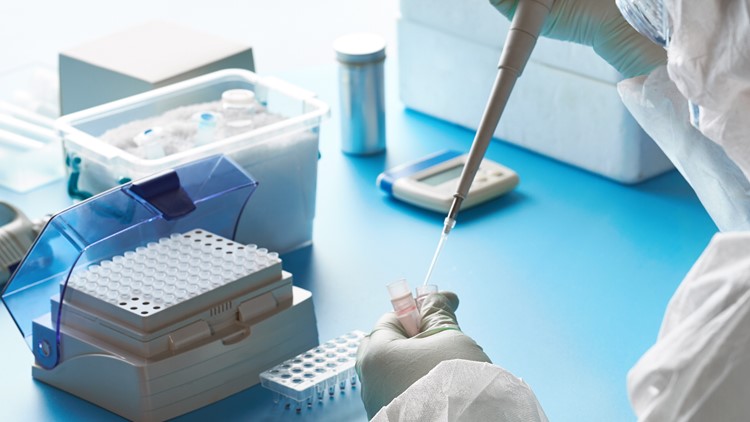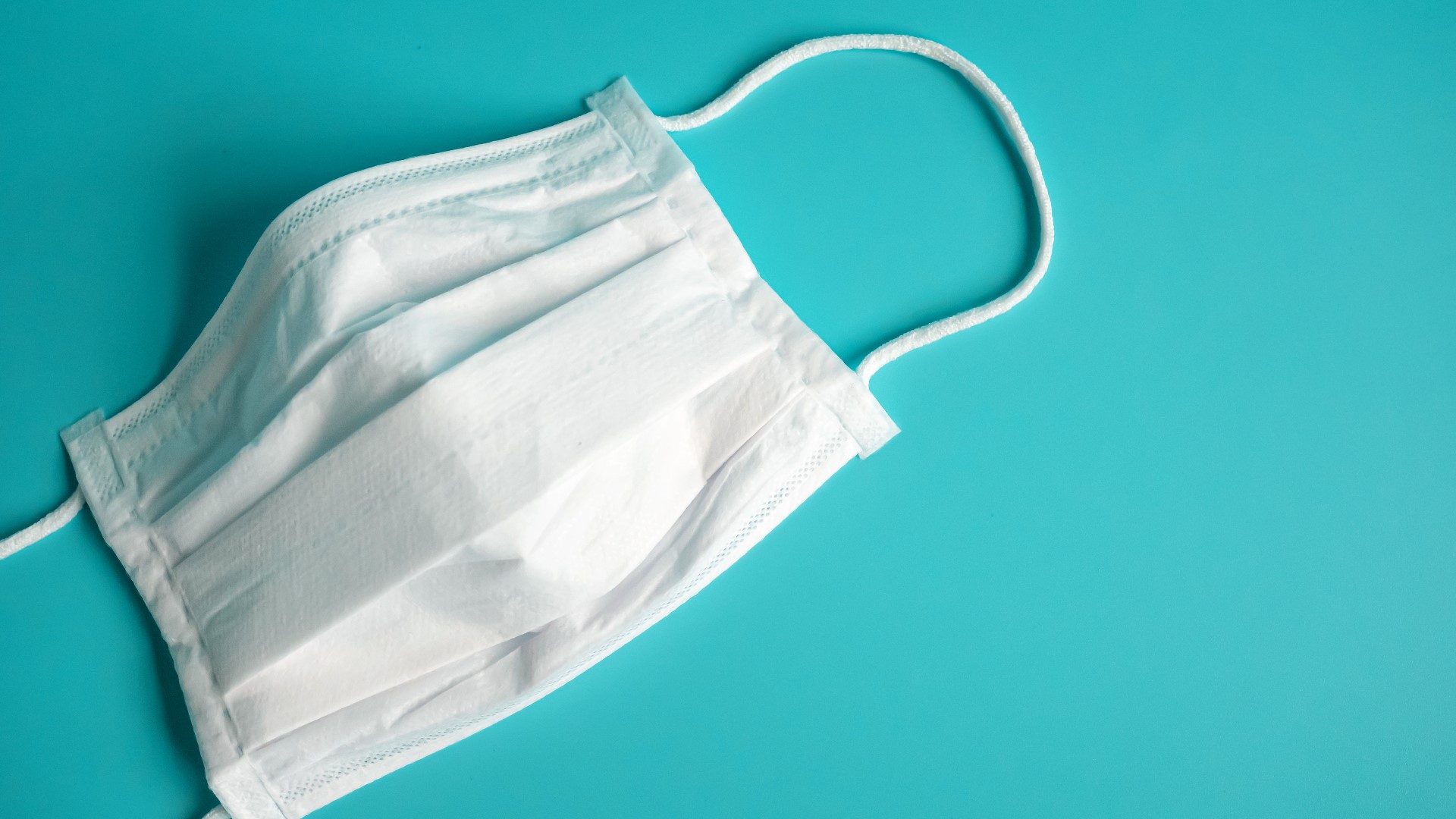KANSAS CITY, Mo. — Every word John Price spoke was a struggle.
Every breath was exhausting. Every morning he woke with a fever.
It took him a week to get tested for the coronavirus.
He worried it wouldn’t happen. For about four months, Price and his wife Sarah have been living north of the Missouri River in a broken-down van in the parking lot of a department store where Sarah had a job until the pandemic put her out of work.
With the van out of commission, Price couldn’t drive to a testing facility, he told The Kansas City Star. He was too sick to make the 10-minute walk to the bus station.
In the van, they divided the passenger and driver’s seats with whatever items they could find — dirty clothes, canned food — to build a barrier.
John Price didn’t want to get his wife sick.
They had joined the ranks of the most vulnerable. Those who are experiencing homelessness are often older, have pre-existing health conditions, and can’t follow guidelines of social distancing. Frequent hand-washing and quarantines are harder to manage, all of which puts them at higher risk. An outbreak in the homeless population could endanger the entire region.
For people already struggling with low income, the pandemic hits twice as hard. Between Missouri and Kansas, more than 66,000 people filed for unemployment for the week ending March 21. About 119 people in Kansas City have tested positive for the virus.
The Prices were evicted from their apartment in August. They spent months living in the van, in the parking lot near Interstate 29 and Highway 152, before police told them to leave last weekend. They’ve been out of food stamps for two weeks.
“All the services trying to help the homeless in Kansas City, they expect you to come to them,” John Price said. “There’s no one willing to come to us.”
Because Price deals with PTSD, anxiety and extreme claustrophobia, he said, he can’t go to a shelter. Sarah won’t go without him.
Though Price sought his doctor’s help as soon as he began showing symptoms, many of Kansas City’s most vulnerable are afraid to do so because of the potential cost.
Price’s symptoms were not bad enough to send him to the hospital. But when a hospital stay is necessary, the cost is enough to keep people away, especially families living paycheck to paycheck.
One report examined the cost of treatment by looking at diagnoses such as pneumonia, which often requires the same level of hospital resources. People without major issues could see an average cost of $13,767 for a pneumonia admission, including the amount paid out of pocket and the amount paid by insurance.
Those with major complications could see the cost top $20,000.
The Samuel U. Rodgers Health Center, just west of Ninth Street and Prospect Avenue, serves much of the city’s vulnerable population. It also absorbs much of the cost of care for its patients.
However, if a patient needs more intensive care, they have to send them to a hospital — where the cost starts to spike.
The center’s 100,000 clients are mostly working poor. 60% speak Spanish, and a small number make just enough money to not be eligible for Medicaid.
“They really have no other avenue,” said CEO Faisal Khan. “How do people who struggle to pay bills get to meet those needs?”
Khan said those who are uninsured would be reluctant to seek care when they first show symptoms, clogging emergency rooms later on. In Wichita, a hospital’s emergency room has already been clogged by people requesting testing for COVID-19.
Khan predicts the health center will soon be hit hard by a wave of patients.
The crisis means trouble for the health center, too.
In addition to imposing a no guest or visitors policy, it has canceled all non-emergency dental procedures to limit the spread of infection, causing a loss in revenue.
Because it absorbs much of the cost of care, its income dries up when people stop going — as they are currently supposed to stay home.
“If (the federally-qualified health centers) go under,” Khan said, “that exposes potentially 2.3 million people in Missouri to almost no resources for healthcare. Once we recover from the pandemic, their healthcare needs will go unanswered.”
Khan said that’s when complications from health issues such as diabetes will pop up. Another issue is children getting on-time vaccinations. He said children could be behind on getting vaccines such as measles or chicken pox, creating a second round of a public health threat.
All of the community health centers in Kansas City are still seeing pediatric patients and pregnant moms, though those appointments are only during morning hours to limit exposure.
“Some of the worst effects are yet to play out,” Khan said. “We do not have any testing capacity.”
Khan said he would like to set up drive-thru testing, but would need free test kits first. The 10 kits the center has now, from commercial labs, cost $150 each.
He said supply is a huge problem, especially for masks and ventilators. He pointed to New York as an example, where the state could be forced to ration ventilators.
Last week, the federal government announced additional funding for community health centers across the country, including $82,000 for Samuel U. Rodgers Health Center.
But that’s just a small degree of relief. It’s not enough to keep the health center fully functional.
Unless it receives emergency aid from the federal government, Khan said, it will take a year to recover.
“We’re all starved of resources,” Khan said. He added: “When there are no pandemics, no one cares about public health.”
Finding resources is especially hard when living in a non-functional minivan north of the river.
The trouble started for John and Sarah Price when they were evicted from their apartment after having problems with their housing vouchers.
For months, they bounced back and forth between hotel rooms and their van. In December, Sarah was in a car accident, which rendered the van undriveable.
The couple towed the van to the J.C. Penney’s parking lot in Kansas City, North, so Sarah could continue to go to work as a sales associate.
But when the coronavirus pandemic struck, she was out of a job.
“It’s still been overwhelming to not have a paycheck, not have the funds to do what we need to do,” Sarah said.
Price, who has PTSD, is unable to work most jobs. And when he became symptomatic, he had to put his job search on hold.
So the pair spent their days cooped up in the van, only leaving to use the bathroom in Target. One of the employees they made friends with offered to charge their phones and battery packs. John Price’s doctor delivered a pair of masks to the couple.
When John Price woke up each morning, he would reach for whatever soda they had bought on sale. He spent each day scouring the internet for jobs or trying to relax by playing a game on his Switch Lite. Sarah Price might use a coloring book app on her phone.
John Price had blankets blocking the windows to keep people from being able to easily look inside the van.
“I’m homeless but I’m a human being,” John Price said. “As a human being, I don’t deserve to be treated as some animal in a zoo where you go in and stare at me.”
Over the weekend, someone called the police on them. John Price had been told that as long as he wore a mask, he could use the bathroom in Target. He didn’t like just going in to use the bathroom, so he would also buy a drink from the front.
But when police officers showed up, he said, he and his wife were forced to leave.
A San Diego-based organization called Sisters of the Street helped book them a hotel room and ordered them an Uber.
Price hasn’t had a fever over the last several days, though he still struggles to breathe.
The couple ordered chicken poppers to eat Monday. Price would order off the dollar menu from the surrounding fast food restaurants if he could, but the dining areas are closed. The drive-thru operations don’t take walk-ups.
Their food stamps don’t come in until April 2.
The couple hopes to buy a trailer soon, after the field it is sitting in has dried up. A volunteer from Free Hot Soup offered to drop it off to them.
That way, they’ll at least have a roof over their heads.
MORE STORIES



